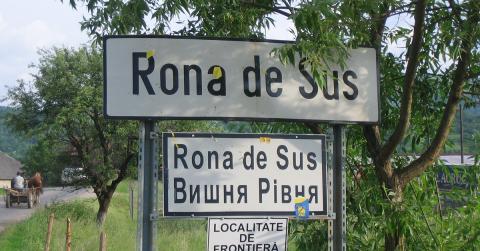More from UN DESA
How standardizing geographical names can make an impact on sustainable development

Wherever we go in the world and whatever we do –whether we’re walking around town, using a ride-sharing app, surfing the Internet, or shopping for groceries – we encounter names of places. These geographical names provide us not only with a sense of place but also with a means of getting around, helping us find information and organize the world we live in.
Datasets of geographic names have a direct relationship with all other data themes. Authoritative naming of locations and geographic names are vital to supporting humanitarian aid; protecting life and property; responding to climate change and food security; designing urban space and infrastructure; promoting tourism; advancing indigenous rights and reconciliation; and many more.
The importance of standardized geographical names became very evident during the COVID-19 pandemic. One case highlighted that the related travel restrictions during the pandemic reinforced the need to harmonize and standardize names of Austria’s geographic features that crossed the borders of Czechia, Hungary, Italy, Slovakia and Slovenia. The case demonstrated that feature names, which may have previously been considered unimportant, can become essential overnight and that it would have been an advantage to apply the principles of place-name standardization in advance. It also demonstrated the importance and benefits of cooperation between boards of national geographical names and mapping agencies, as well as among the boards of national names of neighboring countries.
Geographical names are sine qua non for location and identification. They underpin data collection, monitoring and analysis and therefore are undoubtedly necessary for managing and monitoring the Sustainable Development Goals. As such, the 2023 Session of the United Nations Group of Experts on Geographical Names (UNGEGN) will be convened in-person from 1 to 5 May 2023 at the United Nations Headquarters New York. The session is expected to highlight UNGEGN’s role as an enabler in preserving cultural heritage and, where appropriate, support relevant aspects of the 2030 Agenda for Sustainable Development.
Organized by the Statistics Division of UN DESA under the theme “Strengthening relationships, links and connections in geographical names standardization and for sustainable development and pandemic recovery”, the Session will bring together over 150 experts from national naming authorities, academia, and the private sector to discuss strategies and methodologies by which the standardization of geographical names throughout the world can be advanced for the benefit of all citizens, Governments and non-governmental organizations.
For more information:
3rd Session of the United Nations Group of Experts on Geographical Names
Photo credit: Peter Jordan 2008
 Welcome to the United Nations
Welcome to the United Nations